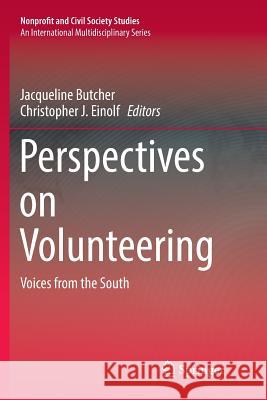Perspectives on Volunteering: Voices from the South » książka
topmenu
Perspectives on Volunteering: Voices from the South
ISBN-13: 9783319819938 / Angielski / Miękka / 2018 / 280 str.
Kategorie:
Kategorie BISAC:
Wydawca:
Springer
Seria wydawnicza:
Język:
Angielski
ISBN-13:
9783319819938
Rok wydania:
2018
Wydanie:
Softcover Repri
Ilość stron:
280
Waga:
0.42 kg
Wymiary:
23.39 x 15.6 x 1.6
Oprawa:
Miękka
Wolumenów:
01
Dodatkowe informacje:
Wydanie ilustrowane











